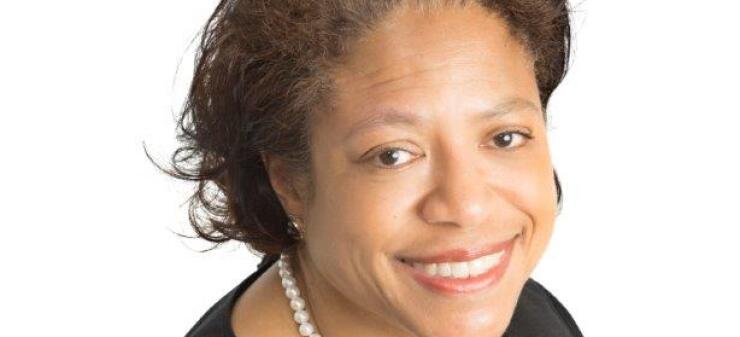The Puerto Rico Oversight Board tried to expel a suit against the Puerto Rico Electric Power Authority and, at the same hearing, Puerto Rico bankruptcy Judge Laura Taylor Swain said she would not send out a central government disclosure statement until she was confident all parties had made sincere efforts for consensus.
Both developments took place at the Omnibus Hearing for the Puerto Rico bankruptcy held telephonically in the U.S. District Court for Puerto Rico.

The disclosure statement in the central government bankruptcy, for which Swain said there have been a "large number" of submissions challenging it, explains the terms and conditions of the Puerto Rico central government debt restructuring to the bondholders, pensioners, and other creditors who will vote on the debt restructuring and it will be distributed to these parties before they vote.
The deadline for submissions was 5 p.m. Tuesday.
The involved parties include those groups who will vote on the deal, including the Oversight Board, and Puerto Rico's Fiscal Agency and Financial Advisory Authority. However, Swain will decide what form the disclosure statement will take before it is sent out.
Swain said she would insist that all parties make a sincere effort to compromise on the disclosure statement. They should work with Magistrate Barbara Houser in mediation.
She said that while the disclosure statement hearing is set for July 13, if Houser cannot confirm the parties had made a sincere effort to hash out their differences Swain said she would not send out the statement immediately after the hearing.
Meanwhile, the Oversight Board's attorney Lary Rappaport made arguments to Swain as to why she should dismiss the successor suit to a February 2015 lawsuit electric ratepayers filed against PREPA. The 2015 suit was stayed after the board put PREPA into bankruptcy in May 2017.
In both suits, a group of electric ratepayers filed suit against PREPA, some fuel testing laboratories, and fuel suppliers, alleging that from 2002 to 2016 the entities had conspired to provide PREPA low-quality, cheap fuel and then to charge the consumers as if appropriate quality, expensive fuel had been purchased.
According to statute PREPA has the right to pass on the charges for fuel to its consumers.
In September 2020 Anne Catesby Jones and Jorge Valdes Llauger, who reside in San Juan, launched an adversary proceeding in the PREPA bankruptcy to seek their consumer claims against the authority. Catesby Jones and Valdes Llauger have been named representatives of the ratepayers.
Essentially the current dispute is that the plaintiffs want their case to go ahead independent of developments in the bankruptcy, whereas the board and PREPA want their claims to be treated as part of the bankruptcy like other unsecured claims.
While the plaintiffs have not laid out a sum being sought, damages have been estimated in the billions of dollars and there has been talk of getting a punitive recovery. Since PREPA had $9 billion of bond and other debt as of May 2017, the outcome of the consumer case could be quite significant to bondholder recovery.
Since September 2020, the plaintiffs and the board, which represents PREPA in the bankruptcy, have filed competing briefs.
On Wednesday Rappaport made arguments as to why Swain should dismiss the core two counts of the plaintiffs’ case. He said their third count, a move for relief from the bankruptcy’s stay is being “held in abeyance.”
Rappaport said the plaintiffs had made several legal arguments but the cases they cited were not relevant or supportive of their arguments.
Attorney John Arrastia, speaking for the Official Committee of Unsecured Creditors of PREPA, said the suit was not “justiciable.” That was because it involved a “hypothetical situation” for PREPA and not a concrete dispute.
Arrastia agreed with Rappaport that the plaintiffs’ claims were derivative to PREPA’s own claims. PREPA lost the money, he said. And since PREPA is in bankruptcy anything it lost prior to the bankruptcy should be treated as a typical bankruptcy “avoidance claim.”
For the plaintiffs, Hagens Berman Sobol Shapiro Associate Mark Vazquez said the key issue for the judge was who was hurt by the overpayment. The answer was the PREPA consumers. PREPA itself did not bear any of the costs.
Since PREPA’s estate was not diminished, there can be no avoidance action in the PREPA bankruptcy to recover any money, Vazquez said.
In bankruptcies there are frequently “avoidance claims” where creditors or their representatives file claw-back claims challenging transactions made by the bankrupt entities before the bankruptcy filing. The creditors can “avoid” or undo certain financial transactions under certain conditions, like fraudulent or preferential transfers.
The fuel charge was adjusted perfectly to protect PREPA from having to absorb any of the fuel charges, Vazquez said.
The board is trying to pretend that the authority was not part of the conspiracy, Vazquez alleged. The authority was not a victim but was central to the victimization, he said.
Swain said she would consider the matter before issuing a ruling.





